While walking near a dune on New Zealand's Chatham Island, a family noticed wood sticking out of the sand — which turned out to be a traditional canoe known as a waka.
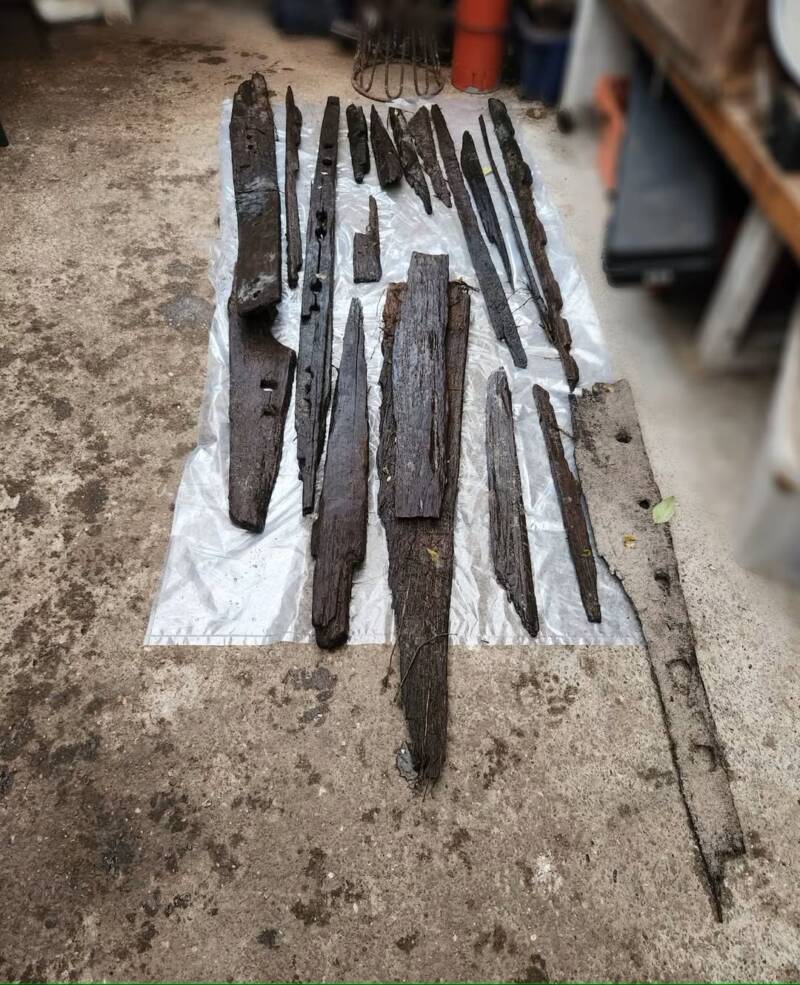
Heritage New Zealand Pouhere Taonga/FacebookThe recovered fragments of the canoe found on Chatham Island.
Thanks to the sharp eyes of a local family, the splintered remains of a canoe has been discovered buried in a sand dune on Chatham Island in New Zealand. Though it’s unclear who originally built the water craft, it speaks to the island’s long and fascinating nautical history.
Hundreds of years ago, the island was notably populated by the Moriori people, who used a type of canoe known as a waka. While more research is needed to determine the provenance of this canoe, it certainly speaks to the Chatham Island’s seafaring heritage.
The Accidental Discovery Of The Waka On Chatham Island
According to a statement from the Manatū Taonga Ministry for Culture & Heritage, the fragmented pieces of the canoe were found buried in sand dunes by a local family living on Chatham Island, a remote island that’s part of an archipelago situated roughly 500 miles southeast of Wellington.
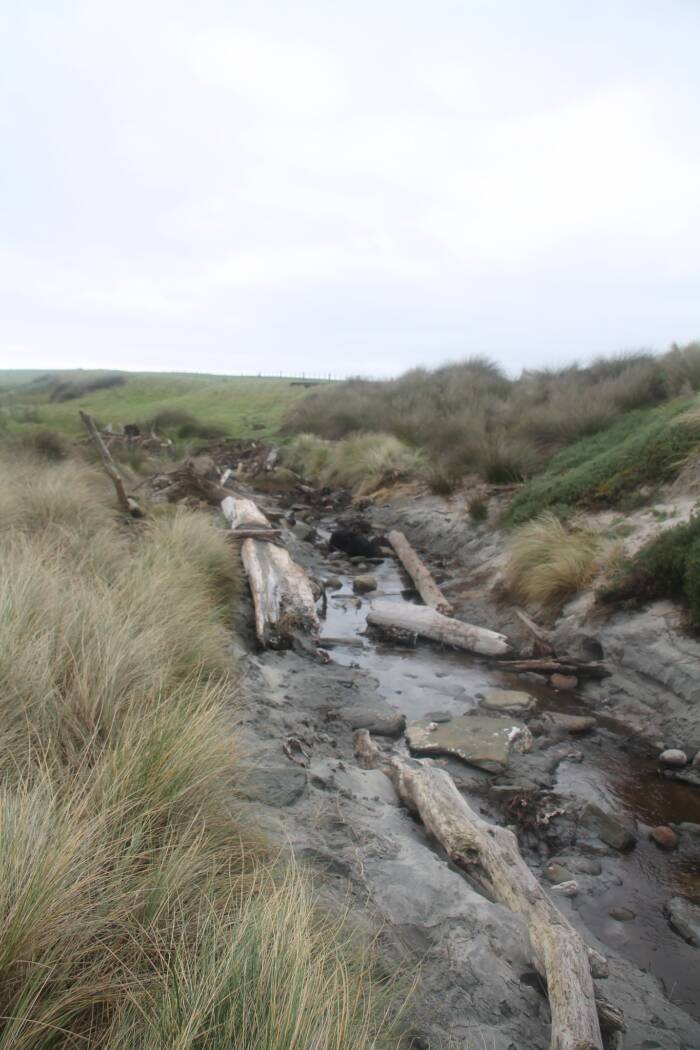
Manatū Taonga Ministry for Culture & Heritage/FacebookThe remote site on Chatham Island where the waka canoe was found by a sharp-eyed local family.
“A local farmer and his son were out walking last year and noticed wood fragments sticking out of a sand dune in a remote part of Rēkohu Wharekauri Chatham Island,” The Manatū Taonga Ministry for Culture and Heritage told All That’s Interesting in an email. “They recovered the waka pieces that were exposed, secured the site and contacted Manatū Taonga Ministry for Culture and Heritage.”
The Ministry added that the discovery was “made by chance” and that the canoe was not found at a “recorded archaeological site,” although “there are many recorded archaeological sites within the wider area.”
The Ministry has been working with landowners and various organizations, as well as archaeologists and conservators, to safely extract the waka from the sand dunes without damaging the fragments.
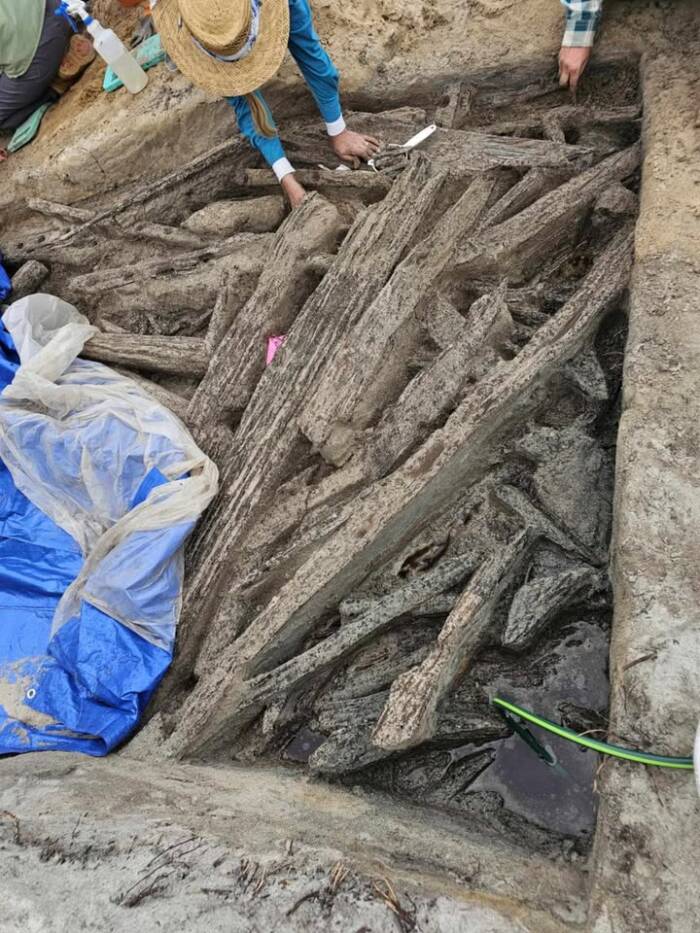
Tane DixFragments of the canoe found on Chatham Island.
“With the vulnerability of the waka to the elements, time is of the essence, and we are committed to facilitating its careful investigation and recovery,” Heritage New Zealand spokesperson Dean Whiting, Kaihautū, explained.
It’s not the first time a canoe like this has been found in New Zealand. A more intact waka was discovered in 2023, which may have been purposefully hidden by the Maori — who lived on the mainland, versus the Moriori who lived on Chatham Island — in the 19th century, possibly to avoid its confiscation by the British.
However, it’s too early to say who this canoe originally belonged to.
“It is too early to speculate on the provenance of the waka,” The Manatū Taonga Ministry for Culture and Heritage told All That’s Interesting. “We are awaiting further information from experts, and this could take some time.”
Wherever it came from, however, the canoe found on Chatham Island remains a remarkable discovery. This find represents a rare cultural artifact that sheds light on the island’s long and tumultuous history.
A Brief History Of The Moriori People And Chatham Island
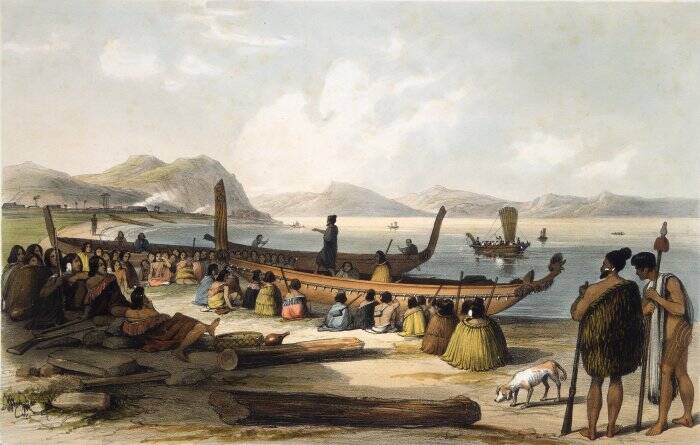
Public DomainAn illustration of a waka war canoe. Circa 1820s.
The Chatham Islands have a long seafaring history, as the Moriori people first settled on the islands in 1500 C.E. According to Moriori oral tradition, they sailed straight from Polynesia, though some researchers believe that they descended from Maori who traveled to Chatham Islands from mainland New Zealand.
Ultimately, even the remote location of the Chatham Islands didn’t protect the Moriori people entirely. In 1835, the Ngāti Mutunga and Ngāti Tama iwi, of New Zealand’s North Island, invaded and decimated much of the Moriori population. Scores of people were killed and most anyone who survived was enslaved.
As such, the canoe found on Chatham Island is an invaluable historical relic. Wherever it originally came from, it seems to be a piece of the island’s long history, and cultural organizations are now focused on preserving the fragments that remain.
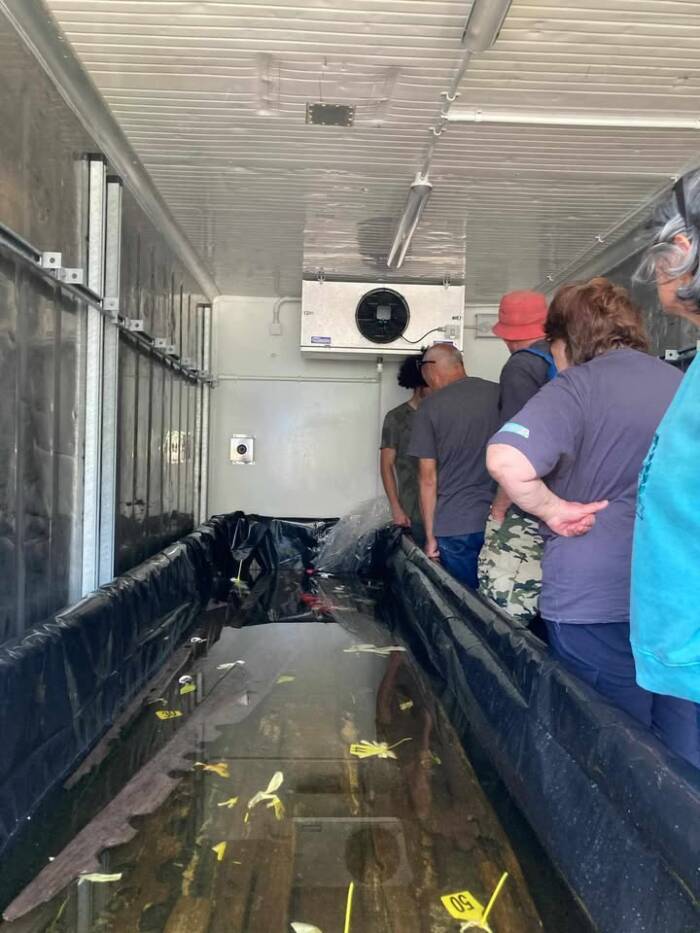
Tane DixThe Chatham Island canoe in water.
The goal now, according to the Manatū Taonga Ministry for Culture and Heritage, is to “ensure that the waka is protected for the benefit of future generations and is allowed to tell its own story.”
After reading about the waka found on Chatham Island, discover the story of the Kakapo, the rotund New Zealand parrot in danger of extinction. Then, read about the Haast’s Eagle, the extinct New Zealand predator that was the biggest eagle ever documented.





